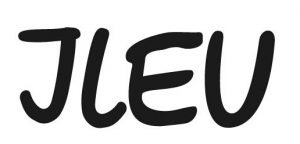European Soirée
The European Soirée is a role-playing game in which participants present themselves as a historically or contemporary important personalities with significance for Europe from his/her home country. The aim of the game is to introduce important personalities to all participants from different countries. Important means that the person should have a significance for Europe. For one evening each participant acts and gets dressed as that famous person of her/his own chosing. It can be a person with a political, cultural, educational, social, scientific or other background.
The participants get to know important personalities from the other countries in this role-playing game. So several famous Europeans from many different centuries and fields meet each other without revealing the person’s name, presenting themselves in this role to the others and all participants try to discover who the other famous participants of this European Soirée. To help discovering the personality each person takes some clothes or other relevant symbolic signs to orientate the others about the century of life, professional or social affiliation. The costumes do not need to be elaborate, symbolic props that indicate the identity of the represented person are enough. After some time each person has to reveal his/her identity and contribution to European history and community. With this role-playing game all participants get to know important aspects of European history and society in a creative way.
The European Soirée should take place in a welcoming environment, with drinks and snacks, in the best case a dinner.
Step by step realization
Stage/Step 1:
The host prepares a letter of invitation and a billet d’entrée for an evening event called European Soirée
Stage/Step 2:
Send an invitation for the European Soirée to all participants at least two weeks before the evening with explanation what to do and how it works.
Stage/Step 3:
The participants choose a personality they would like to present and prepare their role (information about the life of the person, how to present the person)
Stage /Step 4:
Preparation of the room in which the Soirée takes place /something to drink, snacks, if possible dinner
Stage /Step 5:
Realization of the European – welcome, each person takes over the role, give the billet d’entrée to the host without revealing to other participants who he/she is-conversation between the personalities, trying to find out who are the others
Stage/Step 6:
The participants present themselves in their roles (famous historian, poet, painter, philosopher, politician, scientist, Nobel prize winner, Olympic prize winner by naming time of life, life way, why the person became important) and explain, why they chose this personality, and the persons’ connection and achievements for Europe.
Stage/Step 7:
Short questions from the plenum, proposals, revealing the name of the person
Stage/Step:
Take pictures of the participants in their costumes
Stage/Step 9:
After the European Soirée
Scan the billets d’entrée, fix a photo of the person taking the related role, to make a brochure or website
Pedagogical Information
The European Soirée is a good approach to break the ice at transnational meetings.European Dimension
The European Soirée is a good approach to break the ice at transnational meetings. By taking part people not only get in contact with the fellow participants of the event, but they also get to know important aspects of European history and society in a creative way. While preparing for the Soirée the participants have to choose a person that they would like to represent. Thus, they have to critically reflect about the person’s achievements for Europe.Applied in projects
The Wanted Danube
As many people as possible from all Danube countries were invited to crochet a woolen carpet that symbolizes the river Danube. The challenge: To make the so called “river carpet” as long as possible and to integrate people regardless of their age, social background, education and language skills. The aim was to demonstrate the solidarity amongst the Danube countries. The big finale was a cultural performance in which all the small parts of the big carpet were exhibited on the Cathedral square in front of the Ulm Cathedral during the international Danube Festival in 2014.
Once the project was finished, the so called “Danube-Rivercarpet” was divided into small pieces. These pieces were given away for donation.
Open Doors for Danube Countries for All
The ODDA Project took place from February 2017 until February 2018 and it was coordinated by the Institute for Virtual and Face-to-face Learning in Adult Education at Ulm University (ILEU e.V.), President Carmen Stadelhofer. Five regional teams of the international educational network Danube-Networkers worked together in the project and contributed to fostering the intercultural communication in Europe and in the Danube area in particular. The regional teams were from Bulgaria-University of Ruse ”Angel Kanchev”, Center for Life Long Learning, Croatia -The Public Open University Zagreb (POUZ) University of the Third Age, Germany- DANET e.V. c/o ILEU e.V., Romania -The Association “The Writers League” Timisoara Banat Branch and Serbia- Youth Club of Backa Palanka.



